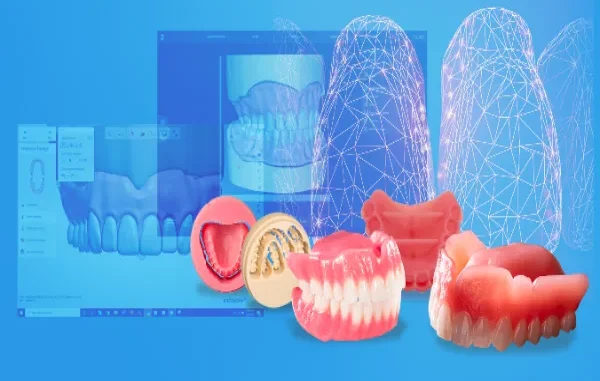
Dentistry is entering a new era, one where technology and healthcare are more connected than ever before. For generations, dentures were thought of as a standard solution: artificial teeth that restored some function but often lacked comfort and precision. Today, however, science and innovation are changing that image. The future of dentures is no longer about one-size-fits-all. It is about personalization, digital design, and new materials that make smiles more natural and more functional than ever.
Where We Stand Today
Modern dentures are already a significant step ahead of what they used to be. Digital imaging, 3D scanning, and computer-aided design have made it possible to create dentures that fit far more accurately than traditional methods allowed. Patients no longer need to sit through endless adjustments, because digital systems can capture every detail of the mouth before fabrication begins.
But while today’s dentures are more advanced, they still leave room for growth. Future innovation is focused on creating solutions that are not only customized to the patient but also adaptive, intelligent, and sustainable.
Emerging Innovations in Personalized Dentures
Smart Materials for Better Function
In the near future, dentures could be built with materials that go far beyond the plastics and resins used today. Researchers are already exploring nanotechnology to create lighter, stronger dentures that mimic the natural flexibility of real teeth. Imagine dentures that adjust slightly as you chew, or materials that self-heal small cracks to extend their lifespan.
AI-Guided Customization
Artificial intelligence is also set to play a role in the future of personalized dentures. With AI, dental software can analyze bite patterns, jaw movement, and even speech to recommend designs that optimize comfort and function. Instead of simple replacements for missing teeth, dentures could be tuned to each person’s unique biology.
The Digital Twin Concept
One of the most exciting concepts is the creation of a “digital twin” of the patient’s oral cavity. This virtual model could be stored securely and updated over time. If adjustments are ever needed, dentists would not need to start from scratch—they could simply compare the current mouth to the digital twin and make precise changes quickly.
Beyond Dentistry: Interdisciplinary Breakthroughs
Dentures may seem like a small corner of healthcare, but innovation in this area often connects with other scientific fields. Bioprinting, for example, is being studied as a way to print dentures that incorporate living cells, allowing them to integrate better with gum tissue. Augmented reality could also be used in the future to help patients visualize how their dentures will look and feel before they are ever made.
Sustainability is another growing focus. With healthcare systems under pressure to reduce waste, scientists are working on eco-friendly denture materials that are biodegradable or recyclable. This could help reduce the environmental impact of dental care, making future dentures not only more personal but also more responsible.
Global Accessibility
Innovation in dentures is not only about comfort and technology—it’s also about access. Billions of people around the world still live without proper oral healthcare. Digital dentistry and at-home solutions may help close this gap. For example, some companies already use impression kits that allow patients to create molds at home, removing the need for multiple in-person appointments.
This is especially important in rural or underserved areas, where professional dental services may be difficult to reach. By combining digital records, AI, and remote communication, the future of dentures could be both global and inclusive.
Human Experience and Emotional Impact
When we think about dentures, it is easy to focus on the mechanical side: chewing, speaking, or jaw alignment. But the emotional side is just as important. A smile can affect confidence, self-expression, and even relationships. Personalized dentures have the potential to not only restore oral function but also rebuild emotional well-being.
This is where innovations like flexible partial dentures show what is possible today. They provide comfort, adaptability, and a more natural appearance compared to traditional rigid options. In the future, these ideas will likely evolve further, combining advanced materials with digital customization to create even better solutions.
Looking Ahead
The journey toward personalized dentures is still unfolding. Already, digital technologies are making it possible to achieve levels of precision and comfort that once seemed impossible. But the future holds even more: smart materials, AI-guided customization, bioprinting, and sustainability will continue to reshape the landscape of oral healthcare.
Brands exploring this frontier, like Revived Smiles, are part of a larger movement toward patient-centered, accessible solutions. While the technology is advancing, the ultimate goal remains simple: to give people back not just their teeth, but their confidence, comfort, and quality of life.
Conclusion
Dentures have come a long way from their earliest forms, and the future promises even greater transformation. By blending digital dentistry with innovative science, personalized dentures are set to redefine oral healthcare for generations to come. From smart materials to AI and global access, these solutions will go beyond function to deliver something truly meaningful—the ability for everyone, everywhere, to smile with confidence.
Leave a Reply